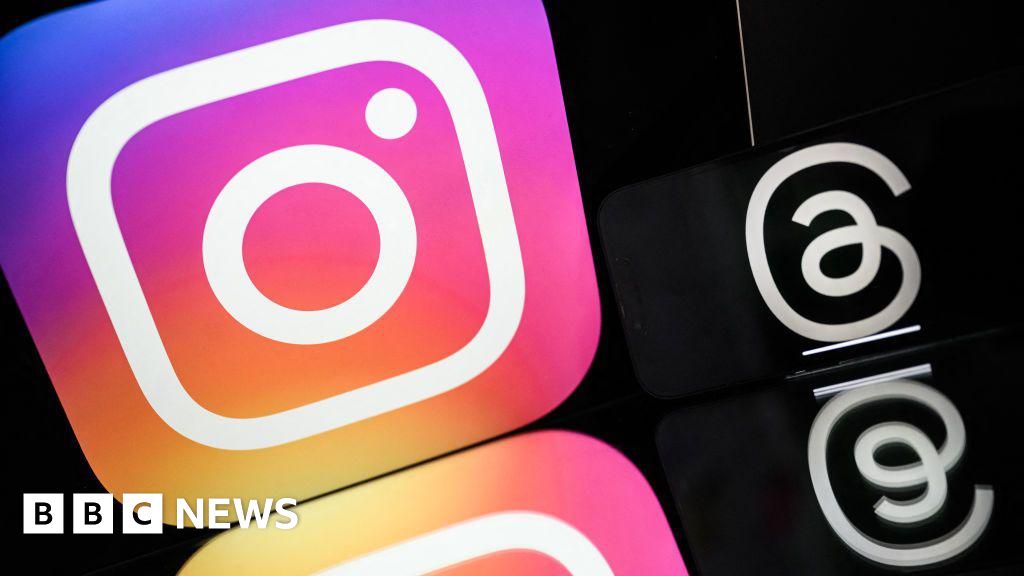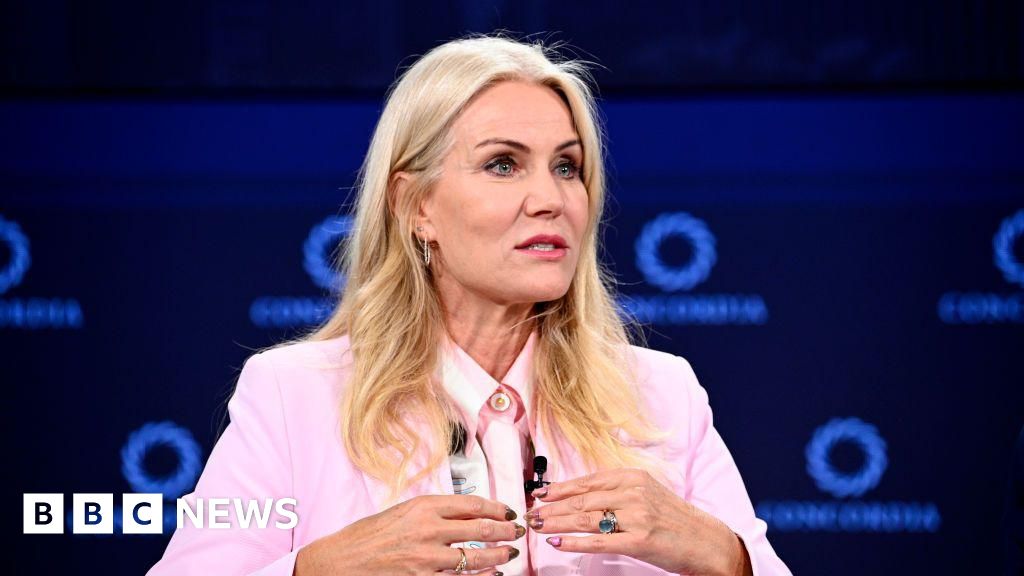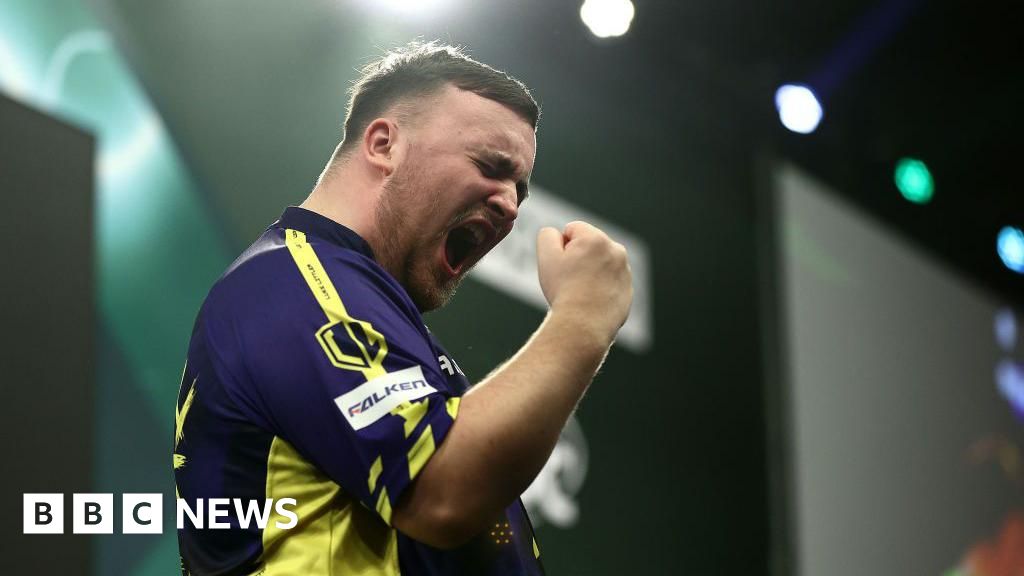ARTICLE AD BOX
By Kathryn Kyte
Business reporter
image source, Joy Wong
image captionMichelle Phan now also runs her own cosmetics companyMichelle Phan says she had to quit making her popular makeup and beauty YouTube videos because she was burned out.
"It became harder and harder for me to pretend to be happy," she says. "And [as a result] I had become toxic with my relationships and friendships. I had my threshold."
Ms Phan, 34, is looking back on the period from 2017 to 2019 when she took a break from uploading her tutorial videos.
A so-called social media influencer or creator, she says she needed time off from the constant pressure to upload ever more content, and chase more and more views and likes.
Today her eponymous YouTube channel has 8.84 million subscribers around the world, and Los Angeles-based Ms Phan mentors and supports other people who are making and uploading videos.
She says that many feel stressed about running out of ideas, and compelled to make new content multiple times per day.
image source, Michelle Phan
image captionMs Phan's videos are watched millions of timesBut what exactly is a social media influencer?
There is no hard and fast definition, but in essence it is someone who has enough followers on social media, and typically YouTube, Instagram or TikTok, that they can monetise it.
The income comes from two main sources - a share of the advertising revenue, and deals with companies to promote their brands.
Regarding the former, on YouTube you can apply to start getting a share of the revenues from adverts placed on your videos, if you have more than 1,000 subscribers and 4,000 watched hours.
YouTube is tight-lipped about how much you can earn, but according to one report it is typically between $3 to $5 (£2 to £3.60) per 1,000 views of one of your videos.
And, when it comes to deals with brands, it varies according to how many followers you have. On Instagram, if you have more than one million follows, one report says that if a company wants you to promote something, you can earn more than $10,000 for just one post.
We spoke to Ms Phan and four other influencers about their experiences.
While there is potentially big money to be made, Ms Phan says that creators "need to know when to draw the line, and take care of themselves" rather than post all the time.
This concern is echoed by media analyst Rebecca McGrath, of research firm Mintel, who says that some influencers are chasing revenues so much that they post "even if they don't have anything new to create or say".
Ms Phan also cautions that you have to be able to deal with online trolls writing horrible things below your videos. "You're also exposed to hateful comments, which I think people aren't prepared for".
This issue was raised back in July by UK social media influencer Em Sheldon, when she spoke before MPs at the House of Commons. A committee of MPs is now continuing to investigate the growth of influencer culture.
TikTok is the most recent new kid on the block among the big social media sites - having only been available outside of China since 2018. It now has more than one billion global users, and people are spending more time watching it than YouTube.
Brothers Colin and Dylan McFarland, and their father Dan, have been uploading comedy skits and dances to the video app since 2019.
image source, The McFarlands
image captionBrothers Colin, right, and Dylan, work with a number of household name brandsKnown as The McFarlands, the trio from Louisville, Kentucky, now have 2.6 million TikTok followers.
"Influencers are a new wave of people you can trust on the internet," says Colin, 27. "If you're selling a product, or giving advice, people are going to trust the people they see on their phone everyday."
Dylan, 25, adds that their humour made brands like Colgate and Gillette "want to work with us, and see what we could do, because we are genuinely acting how we are with our family".
Over the past two years their earnings allowed both brothers to ditch their day jobs, buy homes, and even invest in other properties.
"I wholeheartedly believe anyone can do this," says Colin, who started out editing the videos on his iPhone. "Just find your niche, and stick to it."
Toronto-based, YouTube creator, Kevin Parry enjoys a good living making stop-motion animation videos for his 936,000 subscribers and other viewers.
In 2018, his first year alone, he says he made revenues of more than 100,000 Canadian dollars ($79,000; £57,000).
image source, Kevin Parry
image captionKevin Parry cautions that creators don't focus too much on their personal livesThe 32-year-old, who has worked with Disney, Apple, Amazon and Lego, says that 90% of his income comes from brand deals. The remaining 10% comes from advertising, and an agency that claims revenues from people stealing and monetising his content.
He cautions would-be influencers to not share too much of their personal life.
"If people don't like a video that I made then at least that's just creative work, and I can try to get better at that skill, versus sharing my life and people don't like it," he says.
"How do you compensate and fix that? You can't."
Mr Parry advises creators to hone a specific skill set, such as filmmaking or carpentry, and share that passion, instead of talking about their day-to-day life.
image source, Kevin Parry
image captionMr Parry's videos have a cult followingAuthor Shan Boodram has been talking about sex and relationship issues on her YouTube channel Shan Boody since 2012. She has 664,000 subscribers, and her videos have been watched more than 71 million times.
She says that new creators should recognise if they are in a bad headspace, and not make content if that is the case. And regarding what to upload, she has a golden rule: "Think of the last person you'd ever want to see that content first. And if you are cool with that, press upload."
image source, Maya Washington
image captionShan Boodram says that creators need to focus on their mental healthDespite the downsides to being an influencer - the need to always put up more videos or posts, and the likely online abuse - a great many people would like to be one. It can be a fun and lucrative way to earn a living.
Yet psychologist Stuart Duff of Pearn Kandola cautions that you need a certain personality to hope to be successful at it.
"Clearly there are a huge diversity of successful influencers, in terms of style and personality, but to be really successful the influencer will use a great deal of psychology to influence their followers," he says.
"They will be highly relatable, tell great stories, have a strong, unique brand, and stick to the message. They will be clearly passionate about what they want to say, and always seem to know what their audience wants to hear."
Ms Phan first started putting videos on YouTube in 2007, and thanks in a large part to her success she has gone on to now own and run her own multi-million dollar company - EM Cosmetics.
"If you are a good storyteller then you can grow an immense audience and change your life," she says.

 3 years ago
144
3 years ago
144








 English (US) ·
English (US) ·